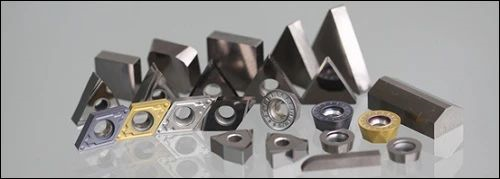1. Introduction of titanium carbide ceramics
Titanium carbide ceramic is a typical transition metal carbide. Its bonding is a mixture of ionic, covalent, and metallic bonds in the same crystal structure. The true composition of titanium carbide is non-stoichiometric and is represented by general TiC.

titanium carbide powder
2. Manufacturing process of titanium carbide ceramics
(1) Preparation of TiC powder
Generally, TiC powder is prepared by reaction of TiO2 and black carbon at high temperature, which can be carried out in carbon tube furnace with hydrogen or high-frequency vacuum furnace at a high temperature of 1600~1800℃.For other preparation methods, please refer to SiC powder preparation method.TiC powder was prepared with particle size of 1~2μm, containing compound carbon in the range of 18%~20%, and free carbon in the range of 0.1%~0.2%.
(2) Molding and sintering of titanium carbide ceramics
Titanium carbide ceramics can be formed by various methods. Check silicon carbide ceramics manufacturing method for details. Sintering into use of grasping. The pressure method can also adopt the self-propagating high temperature synthesis method (SHS method), which has the advantages of energy saving, simple process and high purity.
3. Properties and applications of titanium carbide ceramics
Titanium carbide ceramic is a face-core cubic crystal with high melting point, high strength, good thermal conductivity, high hardness, good chemical stability, no hydrolysis, high temperature oxidation resistance ( only to silicon carbide), and does not react with acid at rate temperature, but can dissolve in the mixed acid of nitric acid and hydrofluoric acid, and form nitride at 1000℃ in the atmosphere of nitrogen.
Titanium carbide ceramic is an important raw material with high hardness and good mechanical properties, which can be used in manufacturing resistance. Crucible crucible for melting tin, lead, cadmium, zinc and other metals. In addition, transparent titanium carbide ceramic is a good optical material.

Porous titanium carbide - titanium cermet gradient materials







